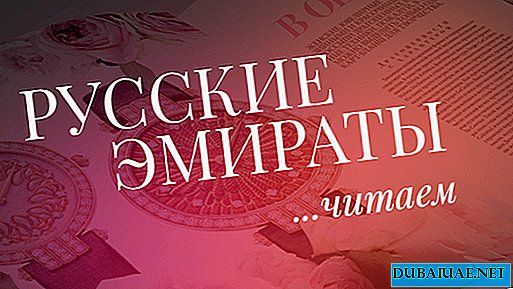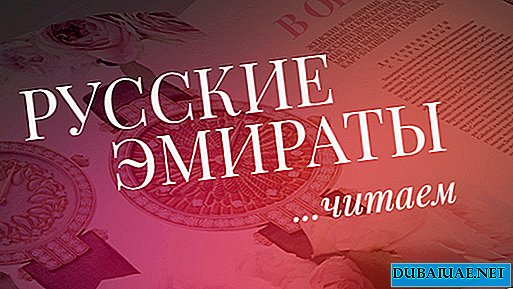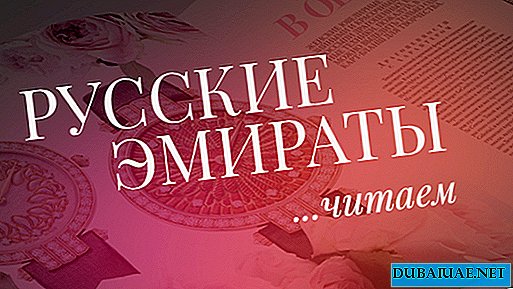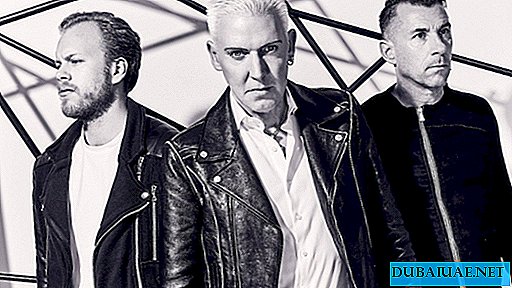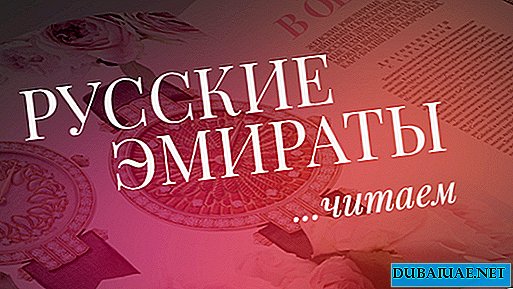MAESTRO VLADIMIR SPIVAKOV - WORLDWIDE FAMOUS VIOLIN AND CONDUCTOR, REFERENCE HEAD OF ONE OF THE MOST FAMOUS CHAMBER ORCHESTRA OF THE WORLD MOSCOW VIRTUOSES. THE ONLY CONCERT OF A TEAM IN DUBAI BECAME TRUE THE MAIN MUSICAL EVENT OF THE COMING YEAR IN THE ARAB EMIRATES. WE MET WITH THE MAESTRO FOR SEVERAL MINUTES BEFORE HIS GOING ON THE SCENE.
You have said more than once that you have prophetic dreams - that the bow is breaking, the strings are breaking ... What did you dream last night, on an airplane, on the way from Moscow to Dubai?
Vladimir Spivakov (hereinafter - V.S.): I almost did not sleep on the plane. After the concert, you always remember how the performance went; thinking about what could be improved. Music does not let go.
How do you get on stage in Dubai?
V.S .: With joyful. People should get a sense of celebration. Although a completely different world is here, man remains a man - with his sorrows and joys, cares and sufferings. Even the ancient Greek philosophers talked about the functions of art, highlighting the hedonistic. Leo Tolstoy spoke of communicative. Russia is characterized by another, secret function - consolation. When we come to small cities where people live hard, perhaps they bought tickets with the last money, they get the hope that there is beauty and harmony, that life is a great gift.
Today, the works of Tchaikovsky, Rossini, Mozart, Piazolla will be heard. How do you make a concert program, what do you focus on?
V.S .: The program should include drama. Recently, the great singer Elena Vasilievna Obraztsova left us, with whom we were friends from a youth and performed a lot together. I dedicated a concert to her, which seemed to reflect her inner world. It became the closing of the Moscow Christmas Festival of Sacred Music, as she was a very religious person.
The concert began with two a cappella choirs by Sergey Ivanovich Taneev - a prayer with the idea of longing for brotherly love, which is so lacking in the modern world, and "From eternity, music suddenly rang out." Then there was the cantata "John of Damascus", which Taneyev wrote in memory of a Christian who lived in the VIII century and served under the Caliph. His words are still used in burial. I didn’t want the first part to end this way, so I unexpectedly conducted another composition - Viktor Kalinnikov, The Lark: about how he rises, sees endless distances and sings for the glory of God.
Just like Elena Vasilyevna left us. The second section was devoted to what she became famous for - she gained recognition thanks to the performance of Western music, especially Italian. Luigi Cherubini sounded the Requiem: this is an essay that Beethoven bequeathed to play at his memorial service. And it all ended with the work “Ave Maria” by Giuseppe Verdi for the choir a cappella of four sacred songs, which he wrote at the end of his life, when he nevertheless came to God. So each composition in the program had its own meaning.
You said that working with Russian orchestras is more interesting, because they lend themselves to improvisation ...
V.S .: With Russian and Italian.
And what is your author's improvisation and freedom when working with the score?
V.S .: There comes a time when the composition gives itself to you as a woman ... Entirely. And you begin to feel it, as if you wrote it yourself. It gives strength and courage to change something. Because you are inside and you feel the composition, like your own skin.
What works does your soul live in? Can you name at least a composer?
VS: My soul lives in everything that I do ... I think that such a composer is Bach. Goethe wonderful said: "It seems to me that when the Lord created the world, he heard the music of Bach."
Vladimir Teodorovich, you have been working with the orchestra for 35 years and probably played almost the entire classical repertoire.
V.S .: The repertoire is huge - from ancient to modern music. We have recorded Modern Portraits discs - the works of our great contemporaries: Arvo Pärt, Rodion Shchedrin, Alfred Schnittke, Sofia Gubaidullina, Edison Denisov ...
Can you single out someone from very young composers?
V.S .: You know that art is developing in waves. There are tectonic strata that protrude from the ocean and create extraordinary natural phenomena: such were the geniuses of the 20th century - Prokofiev, Stravinsky, Shostakovich, Rachmaninov, later Schnittke. Now I can not distinguish such large figures. Moreover, time dictates its own. Previously, people came to listen to symphonies, brought scores to the hall. Now even composers are trying to write miniatures, I do not see large canvases. Something has changed. Then a new time will come, which will demand new and large-scale layers of music.
What was the main musical discovery and disappointment in your life?
V.S .: I am disappointing myself. Infrequently, but it happens. First of all, I try to blame myself if something did not work out in the orchestra. If you did not prompt or did not pay attention to any moments, I scold myself.
You had many opportunities to leave Russia. For a while you lived in Spain and in Paris. What made you return? What do you have in common and indivisible with your homeland?
V.S .: Culture. The roots. Literature, poetry, language. I feel like a Russian person - both with positive aspects and not quite. I was friends with kings and with prime ministers in the West - but you know, when you come to a small city in Russia, where people sit in a coat in an unheated hall, and after the concert they stay and sing to you “for many summers,” what can be compared with this? ! True? Don't you think?




